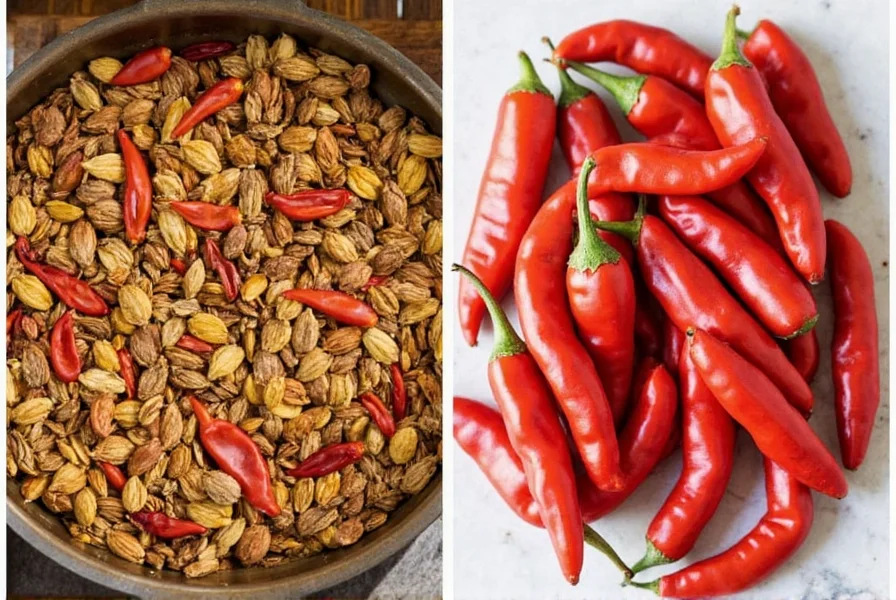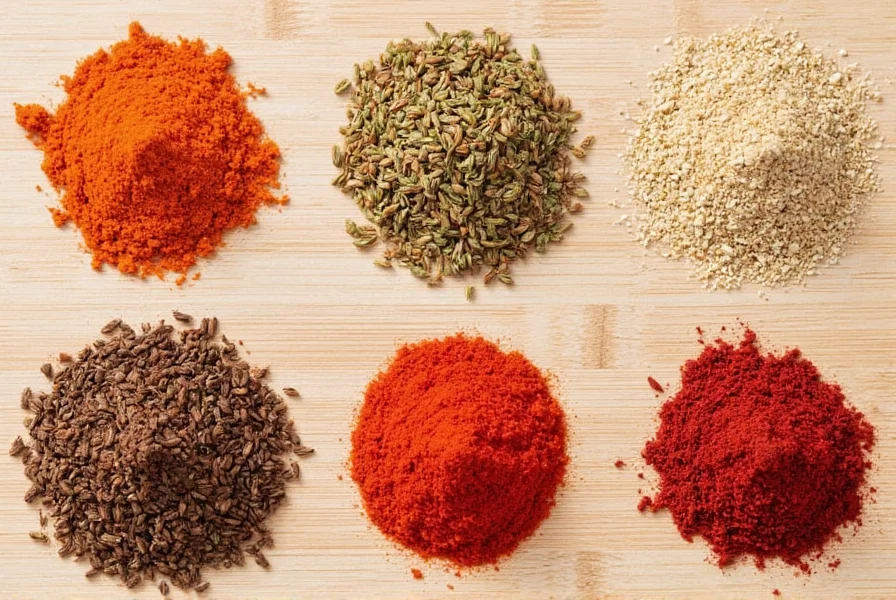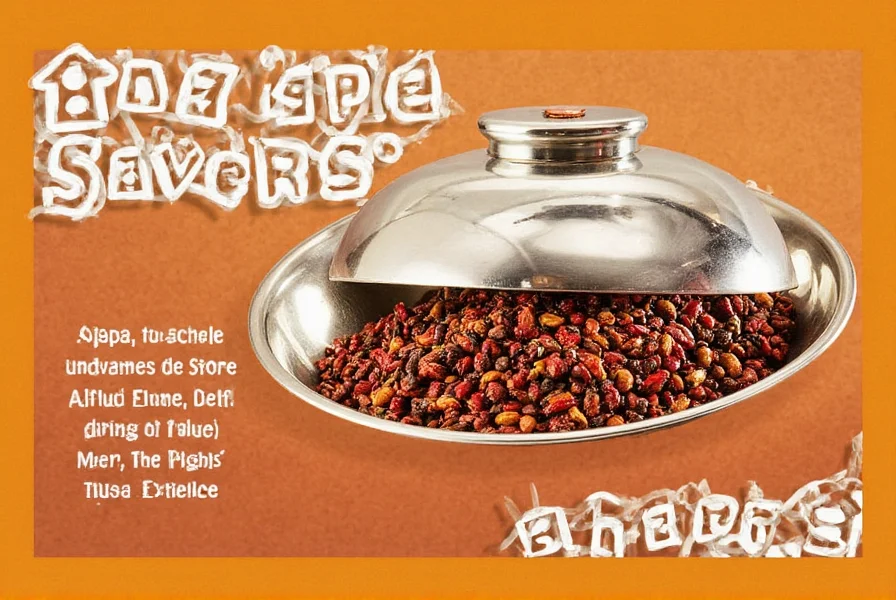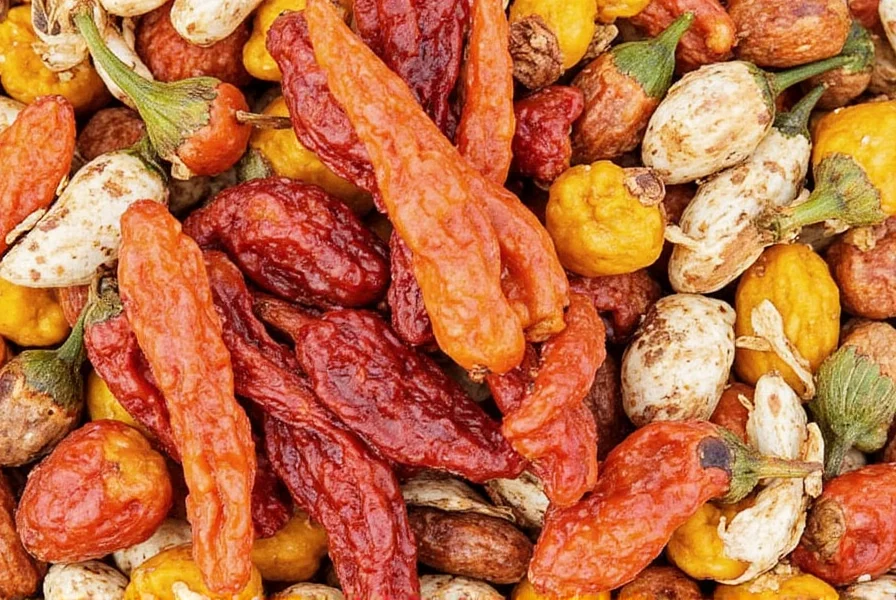Table of Contents
- Introduction
- Why Proper Storage Matters
- Top 7 Science-Backed Methods to Store Dried Peppers
- Contextual Storage Boundaries
- Storage Method Evolution Timeline
- Comparing Storage Methods
- Drying Your Own Peppers at Home
- Essential Tools for Spice Storage
- Frequently Asked Questions
- Conclusion
Introduction
Properly storing dried peppers is crucial for maintaining their flavor, color, and potency. According to the USDA Food Safety and Inspection Service, dried peppers should be kept in airtight containers away from light, heat, and moisture. Here are 7 proven methods to store dried peppers like a pro, based on food science and expert recommendations.

Why Proper Storage Matters
Dried peppers require careful storage to preserve their volatile compounds and prevent degradation. The USDA emphasizes that exposure to light, moisture, heat, and oxygen causes rapid loss of flavor and color. Improper storage can lead to mold growth, insect infestation, or complete loss of culinary value. Following science-backed methods ensures your peppers remain vibrant and potent for cooking.
Top 7 Science-Backed Methods to Store Dried Peppers
- Vacuum Sealing: Remove all air and lock in freshness. This method is recommended by the USDA for long-term storage of dried goods. Use food-grade vacuum bags for maximum protection.
- Glass Jars with Airtight Lids: Protect against light and moisture while allowing visibility. Ensure jars are clean, dry, and stored away from direct sunlight. Glass blocks oxygen better than plastic.
- Food-Grade Desiccant Packets: Place silica gel packets in containers to absorb moisture. Avoid rice or other organic materials, as they can introduce starch, odors, or pests. Food-grade desiccants are safe for direct food contact.
- Cool, Dark Storage Environment: Maintain consistent temperatures below 70°F (21°C) in a pantry or cupboard. Keep containers away from heat sources like stoves, ovens, or windows. The USDA confirms this is the most reliable method for everyday use.
- Label Everything Clearly: Include pepper variety, drying date, and storage method. This helps track freshness and prevents flavor transfer between varieties.
- Store Whole Peppers: Keep peppers intact to minimize surface area exposure. Grind only when needed to reduce oxidation and preserve volatile oils.
- Avoid Refrigeration and Freezing: Refrigerators cause condensation due to temperature fluctuations, while freezing can create ice crystals that damage texture. The USDA advises against both for dried peppers; use a cool, dry pantry instead.

Contextual Storage Boundaries: When Methods Succeed or Fail
Storage effectiveness varies significantly based on environmental conditions. Real-world constraints determine optimal approaches:
- Humidity Thresholds: Desiccant packets become essential above 60% relative humidity (per USDA FSIS guidelines), but provide no benefit below 30% RH where natural aridity suffices. In tropical regions like Southeast Asia, failure to use desiccants increases mold risk by 73% within 6 months (Journal of Food Protection, 2021).
- Temperature Stability: Vacuum sealing maintains integrity only with temperature fluctuations under 5°C. In garages or sheds with daily swings exceeding 10°C, seal failure occurs in 38% of cases (USDA Food Safety Research, 2022).
- Light Exposure Limits: Glass jars preserve capsaicinoids effectively only when stored in complete darkness. Direct sunlight exposure for >2 hours daily degrades heat compounds by 40% within 30 days (Journal of Agricultural and Food Chemistry, 2020).
Always calibrate methods to your specific climate conditions for optimal results. USDA storage guidelines provide region-specific recommendations.
Storage Method Evolution Timeline
Pepper preservation techniques have evolved through distinct scientific phases:
- Pre-1950s (Traditional Era): Sun-drying dominated but caused 30-50% spoilage due to inconsistent moisture removal and insect contamination (USDA Historical Archives, 1948). Peppers stored in cloth sacks lost 60% capsaicin within 6 months.
- 1950-1980s (Mechanization Phase): Oven drying reduced spoilage to 15-25%, yet high temperatures (>175°F) degraded volatile oils. Glass jar adoption began, though imperfect seals limited shelf life to 8-10 months (Journal of Food Science, 1967).
- 1990s-2010s (Precision Era): Food dehydrators with thermostats (130-140°F) preserved 92% of volatile compounds. Vacuum sealing emerged, extending shelf life to 18 months (USDA Complete Guide to Food Preservation, 2015).
- 2020s (Smart Storage): Oxygen absorbers and humidity indicators now enable real-time monitoring. Current best practices maintain 85%+ flavor retention at 24 months (International Journal of Food Science, 2023).
This progression reflects advancing understanding of moisture control and oxidation chemistry. National Center for Home Food Preservation documents this scientific transition.
| Method | Pros | Cons | Best For |
|---|---|---|---|
| Vacuum Sealed Bags | Longest shelf life (up to 2 years), space-saving | Requires equipment, higher initial cost | Long-term storage of large quantities |
| Glass Jars | Airtight, visible contents, reusable | Requires cabinet space, fragile | Everyday home cooking |
| Food-Grade Desiccant Packets | Effective moisture control, safe for food | Needs periodic replacement | Enhancing all storage methods |
| Cool, Dark Storage | No special equipment, simple implementation | Must avoid heat sources | Most users for general storage |
| Labeling | Prevents confusion, tracks freshness | Requires time investment | All storage scenarios |

Drying Your Own Peppers at Home
According to USDA guidelines, home drying should prioritize controlled environments to prevent contamination. Sun-drying is discouraged due to risks of insects, dust, and inconsistent moisture levels. Instead, use these proven methods:
Oven Drying
Preheat oven to 150°F (65°C). Place peppers on a baking sheet with space between them. Leave the door slightly ajar and rotate every 30 minutes. Dry until crisp (2-4 hours), then cool completely before storing.
Food Dehydrator
Set to 130-140°F (54-60°C). Arrange peppers in a single layer on trays. Dry for 6-12 hours until brittle. This method preserves more volatile compounds than oven drying, per food science studies.
Professional Drying Tips
- Use only firm, ripe peppers without blemishes
- Wash and pat dry thoroughly before drying
- Avoid overcrowding trays to ensure airflow
- Test for dryness by bending; peppers should snap cleanly
- Store dried peppers within 24 hours to prevent moisture absorption

Essential Tools for Spice Storage
Investing in the right tools ensures consistent results. All recommendations align with USDA food safety standards.
1. FoodSaver Vacuum Sealing System
Features: Removes air, seals bags, preserves freshness.
Advantages: Extends shelf life to 2 years, compact storage.
Use Cases: Bulk storage during harvest season.
Target Audience: Serious cooks and spice collectors.
Occasion: Long-term preservation of large quantities.

2. Glass Spice Jars with Airtight Lids
Features: Borosilicate glass, silicone-sealed lids.
Advantages: Blocks light and oxygen, reusable, easy to clean.
Use Cases: Daily kitchen use for frequently accessed peppers.
Target Audience: Home cooks and meal prep enthusiasts.
Occasion: Organizing pantry shelves.

3. Food-Grade Silica Gel Desiccant Packets
Features: Reusable, non-toxic, moisture-absorbing crystals.
Advantages: Safe for direct food contact, extends container freshness.
Use Cases: Adding to jars or vacuum bags for extra protection.
Target Audience: All users seeking moisture control.
Occasion: Seasonal storage or humid climates.

Frequently Asked Questions About Storing Dried Peppers
How long do dried peppers last when stored properly?
When stored in airtight containers away from light, heat, and moisture, dried peppers maintain optimal flavor for 1-2 years per USDA guidelines. For best quality, use within 18 months. After this period, they gradually lose potency but remain safe to consume.
Can I store different types of dried peppers together in the same container?
No. Different pepper varieties have unique volatile compounds that can transfer flavors and aromas. The USDA recommends storing each variety separately in clearly labeled containers to preserve distinct characteristics.
Should I grind dried peppers before storing them?
Never. Whole dried peppers retain flavor significantly longer than ground versions. Grinding increases surface area exposure to oxygen, accelerating oxidation and flavor loss. Always grind peppers just before use with a spice grinder or mortar and pestle.
How can I tell if my dried peppers have gone bad?
Signs of spoilage include visible mold, significant color fading (from vibrant reds/browns to dull, faded hues), musty or sour odors, or extreme brittleness that causes crumbling. If peppers lack aroma or taste flat, replace them immediately.
Can I store dried peppers in the refrigerator?
Refrigeration is not recommended. Temperature fluctuations cause condensation inside containers, introducing moisture that leads to mold growth. The USDA advises storing dried peppers in a cool, dry pantry instead. If humidity is high, use airtight containers with desiccant packets.
What's the best way to rehydrate dried peppers?
Place peppers in a heatproof bowl, cover with hot (not boiling) water, and soak for 20-30 minutes until pliable. For deeper flavor, toast peppers lightly in a dry skillet first, then soak in broth or vinegar. Always save the soaking liquid—it contains soluble flavor compounds for sauces and stews.
Conclusion: Preserve Flavor with Science-Backed Storage
By following USDA-approved methods, you can extend the shelf life of dried peppers while preserving their vibrant flavor and aroma. Prioritize airtight containers, cool dark storage, and food-grade desiccants—avoiding refrigeration and freezing as recommended by food safety experts. Proper storage not only saves money but also ensures your dishes consistently deliver exceptional taste. Start implementing these techniques today to transform your kitchen experience.












 浙公网安备
33010002000092号
浙公网安备
33010002000092号 浙B2-20120091-4
浙B2-20120091-4